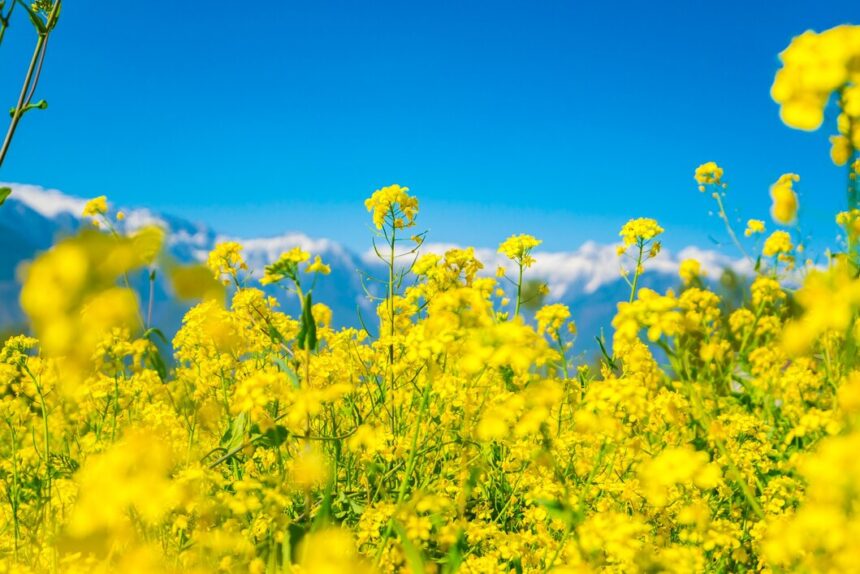Canola, also known as rapeseed, is a valuable crop in South Africa, prized for its versatility and nutritional benefits. As a major source of edible oil and protein-rich meal, canola cultivation plays a crucial role in the country’s agricultural sector. To optimize the potential of canola production, farmers employ various techniques aimed at enhancing both the quality and yield of rapeseed. Let’s explore some of these techniques and their significance in South Africa’s agricultural landscape:
1. Selecting High-Quality Seed Varieties:
Choosing the right seed variety is the first step in ensuring a successful canola crop. Farmers select high-quality seed varieties that are well-suited to local growing conditions, including climate, soil type, and disease resistance. Improved cultivars with traits such as high yield potential, early maturity, and tolerance to biotic and abiotic stresses contribute to the overall success of canola production.
2. Soil Preparation and Fertility Management:
Proper soil preparation is essential for establishing healthy canola crops and maximizing yield potential. Farmers utilize techniques such as plowing, harrowing, and soil testing to ensure optimal soil conditions for canola cultivation. Adequate soil fertility, pH levels, and nutrient availability are critical for promoting vigorous plant growth and optimizing yield. Balanced fertilization with nitrogen, phosphorus, potassium, and micronutrients supports plant development and enhances crop quality.
3. Optimal Planting Practices:
Timing and spacing are key factors in maximizing canola seed yield. Planting should occur during the optimal planting window, typically in autumn or early winter, to capitalize on cooler temperatures and adequate moisture levels. Farmers utilize planting techniques such as row spacing, seeding rates, and planting depth to optimize plant growth and spacing. Adequate plant density and spacing promote optimal light interception, air circulation, and nutrient uptake, resulting in healthier plants and higher yields.
4. Water Management:
Effective water management is crucial for canola production, especially in regions with limited rainfall or erratic weather patterns. Farmers employ irrigation techniques, such as drip irrigation or furrow irrigation, to supplement rainfall and ensure adequate soil moisture levels throughout the growing season. Proper irrigation scheduling, soil moisture monitoring, and water conservation practices help optimize water use efficiency and minimize water stress, leading to improved yield and quality of canola crops.
5. Integrated Pest and Disease Management:
Pests and diseases can significantly impact canola yield and quality if left unmanaged. Integrated pest and disease management (IPM) strategies help farmers mitigate pest and disease pressure while minimizing environmental impact. Monitoring for pests and diseases, implementing cultural practices, and utilizing biological and chemical control measures as needed are essential for protecting canola crops and optimizing yield potential.
6. Harvesting and Post-Harvest Handling:
Proper harvesting and post-harvest handling are critical for preserving canola seed quality and maximizing yield. Farmers aim to harvest canola at the optimal stage of maturity to achieve maximum seed size, oil content, and quality. Efficient harvesting techniques, such as using specialized equipment and adjusting harvesting speed, minimize seed loss and damage during harvesting. After harvest, proper drying, cleaning, and storage practices help maintain seed quality and prevent spoilage, ensuring the highest possible yield and market value.
In conclusion, enhancing the quality and yield of canola (rapeseed) in South Africa requires a combination of agronomic practices, water management strategies, and pest and disease management techniques. By implementing these techniques, farmers can optimize canola crop production, meet market demands, and contribute to the sustainable growth of the agricultural sector. With continued innovation and investment in research and technology, South Africa’s canola industry holds promising prospects for the future.
Join 'Farmers Mag' WhatsApp Channel
Get the latest Farming news and tips delivered straight to your WhatsApp
CLICK HERE TO JOIN






